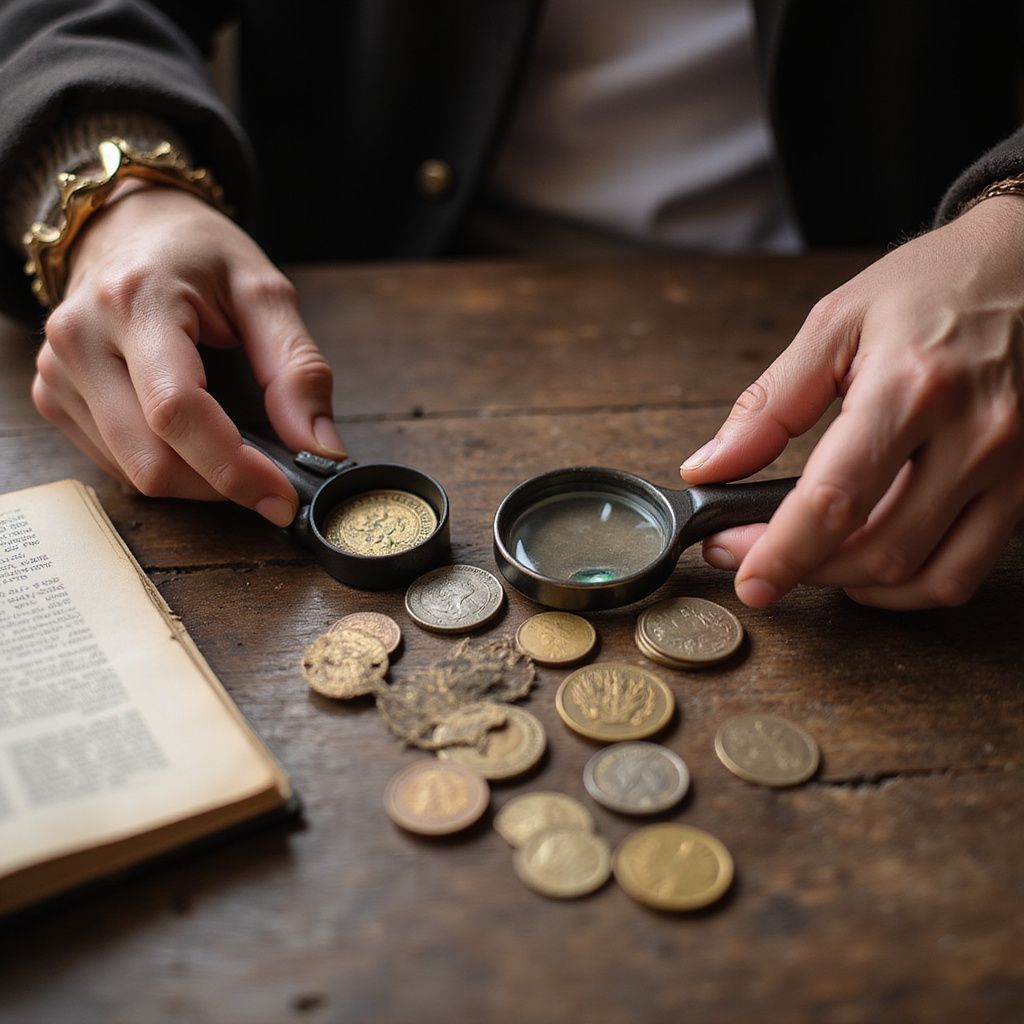Introduction to Rare Coins: Value Beyond Currency
Rare coins capture history and craftsmanship, offering collectors both tangible heritage and investment potential.
Rare coins encompass a variety of types, each with unique historical backgrounds and collector appeal. These include ancient coins minted by early civilizations, colonial-era pieces reflecting early American history, and limited-mintage modern coins prized for their rarity. Market demand often hinges on a coin’s age, condition, and provenance, with certain coins commanding premium prices due to their scarcity and cultural significance.
Ancient Coins: These coins date back to Greek, Roman, and other early empires. Their value is tied to historical importance and preservation, attracting collectors interested in antiquity and archaeology.
Colonial and Early American Coins: Minted during the formation of the United States and its colonies, these coins offer insight into early American history and are sought after for their rarity and condition.
Commemorative Coins: Issued to mark significant events or anniversaries, these coins often have limited runs and unique designs, making them popular among collectors and investors.
Error Coins: Coins with minting mistakes such as double strikes or off-center images. Their rarity and uniqueness can significantly increase their market value.
Bullion Coins: While primarily valued for their metal content, certain bullion coins gain collector interest when they are part of limited editions or have historical significance.
Understanding What Shapes Rare Coin Values
The value of a rare coin depends on several key factors including its rarity, condition, historical significance, and demand among collectors. Coins with limited mintage or unique features often command higher prices.
Grading plays a crucial role; coins in pristine condition typically fetch premium prices. Market trends and provenance also influence valuation, making expert appraisal essential for accurate pricing.
How to Assess the Value of Rare Coins
Starting and Growing Your Rare Coin Collection

Begin with research on coin types and market trends. Store coins in protective holders to preserve condition. Regularly review your collection’s value and seek expert appraisals to guide acquisitions and sales.
Frequently Asked Questions About Rare Coins
This section addresses common questions about rare coins, their valuation, and purchasing tips to help collectors and investors make informed decisions.
How is the value of a rare coin determined?
A rare coin's value depends on factors such as rarity, condition, historical significance, demand, and metal content. Professional grading and market trends also influence pricing.
What should I look for when buying rare coins?
Focus on authenticity, condition, provenance, and certification from reputable grading services. Understanding market prices and avoiding counterfeit coins are essential.
Can rare coins be a good investment?
Rare coins can appreciate over time, especially those with historical importance or limited mintage. However, market fluctuations and collector interest affect their investment potential.
How do I start a rare coin collection?
Begin by researching coin types and values, set a budget, and buy from trusted dealers. Keep coins properly stored and documented to maintain their condition and value.
Need Personalized Guidance?
Contact Gillio & Associates for expert advice tailored to your collecting or investing goals. Our experienced team is ready to assist you with any questions.
Contact Us
Thank you for reaching out. Our experts will review your inquiry and respond promptly with tailored advice on rare coins.
Oops, there was an error sending your message.
Please try again later.
Please try again later.
Contact Our Rare Coin Specialists
For personalized guidance on rare coin valuation, collection strategies, or investment opportunities, connect with Gillio & Associates. Our experienced team is ready to assist you with expert insights and transparent service.